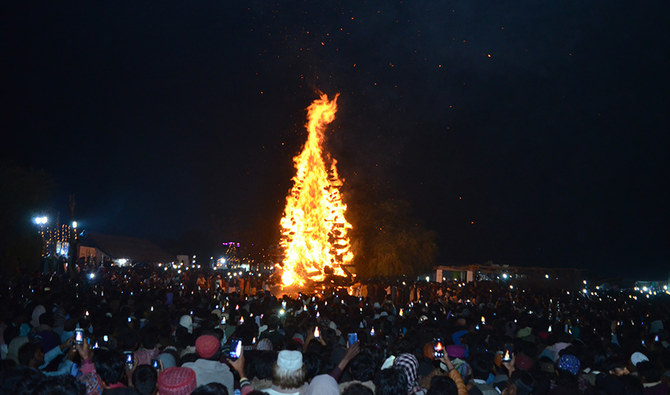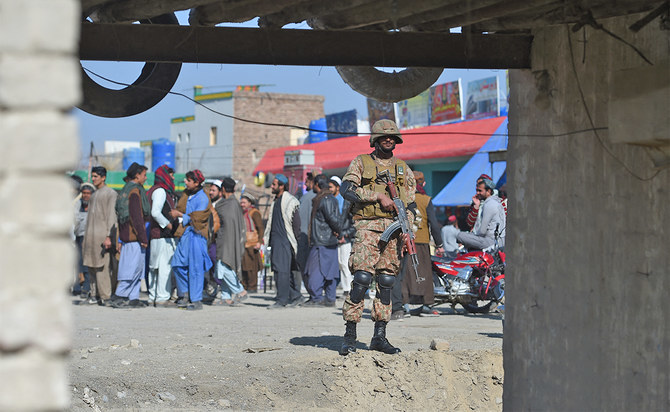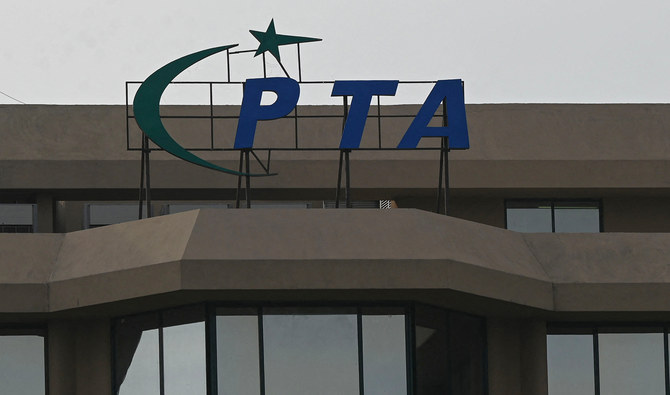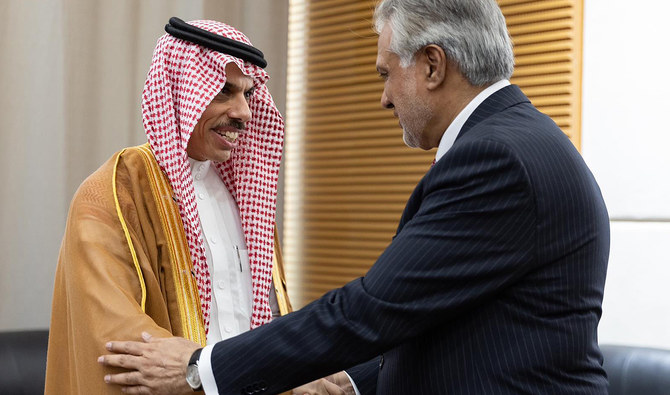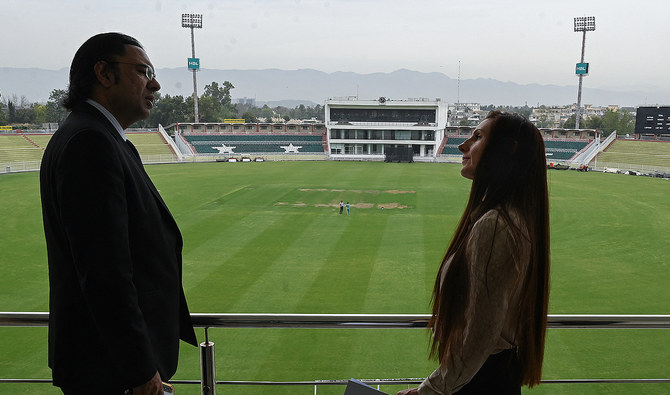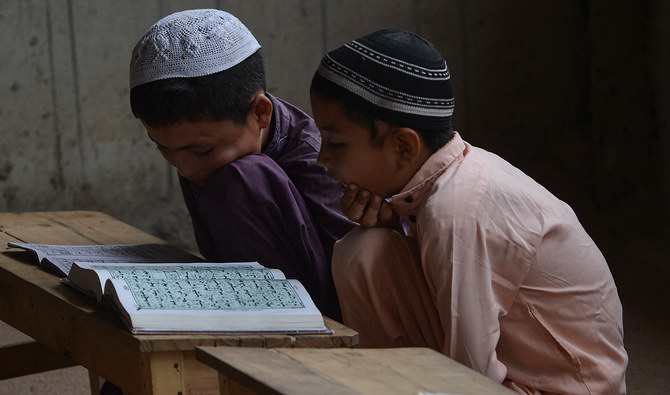SANGHAR, Sindh: For the last three hundred years, thousands of Hindus and Muslims have gathered each year in the southern Pakistani village of Barham Bar to commemorate the death anniversary of a beloved local saint by holding a massive bonfire festival.
But for the last few years, the height of the trapezoid-shaped bonfire structure, which used to be over 90 feet tall, has shrunk due to the scarcity of wood, with environmental experts warning against the hazardous effects of the ritual for Pakistan — among the countries worst affected by climate change.
The ‘Machh’ ritual marks the death anniversary of Bahram Bari Junejo, whose son received a spiritual signal in a dream to build a 90-foot-tall wooden structure to commemorate the saint’s first death anniversary.
This year was the 305th edition of the festival, a caretaker of the saint’s shrine said, and drew thousands of the saint’s Muslim and Hindu devotees from across Pakistan’s southern Sindh province and beyond, who came in remembrance of their beloved saint and to take back ashes from the bonfire, which they believe has healing powers and can be used to enhance crop yield and tame djinns.
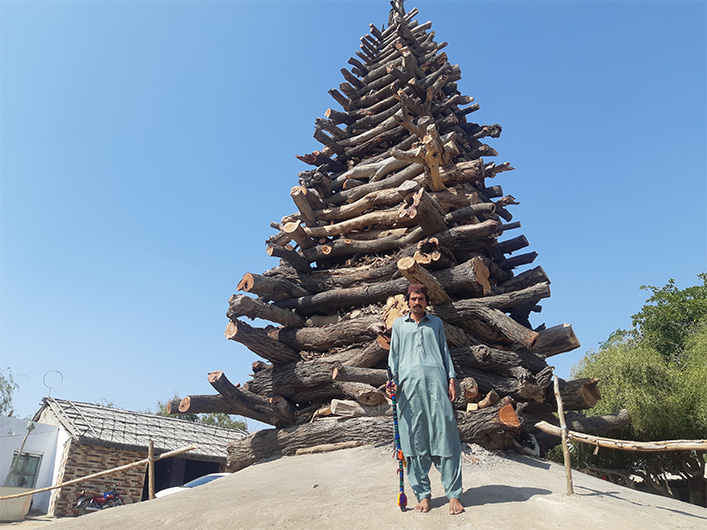
A tower of wood is built near Bahram Bari Junejo’s shrine in Sanghar district of Sindh province in Pakistan ahead of the Machh bonfire ritual on February 15, 2022. (AN Photo by Zulfiqar Kunbhar)
“The height of the bonfire structure this year is 35 feet, which is quite unique in Pakistan,” Faqeer Saddam Hussain Junejo, the shrine’s caretaker, told Arab News this week, saying the structure used to be as tall as 90 feet just a few years ago. “If investigated, a bonfire of this size could prove to be an international novelty.”
“No government or international organization has officially recognized its distinction yet,” Junejo said. “Official status can enhance tourism in this area.”
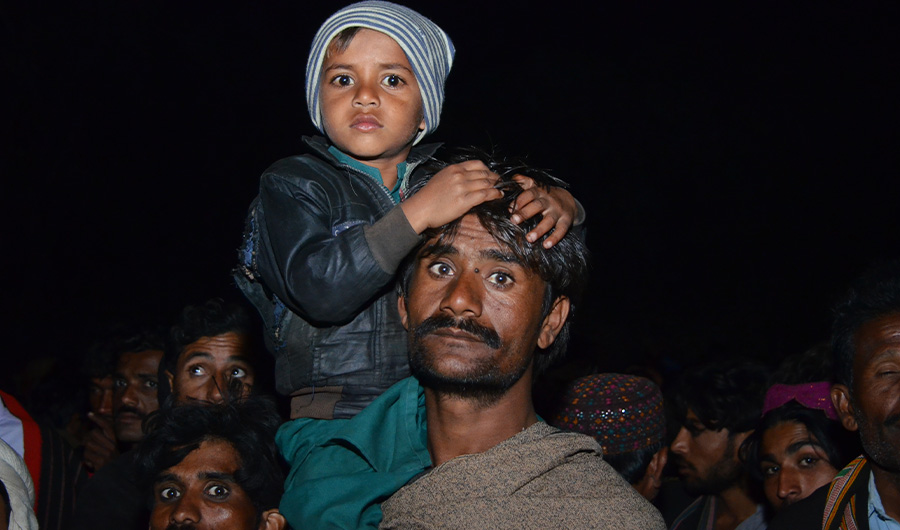
Children attend the bonfire ritual of Machh at Bahram Bari Junejo’s shrine in Sanghar district of Sindh in Pakistan on February 15, 2022. (AN Photo by Abdul Ghaffar Chang)
Muhammad Khan Makrani, a 70-year-old man who had traveled 200 kilometers to participate in the festival, said he had returned after 40 years.
“Things have changed here, the bonfire size is too small compared to the past,” he said. “The last time I came to the festival, it was three times taller than what we are witnessing today.”
The caretaker of the shrine confirmed this, attributing the diminishing size of the spectacle to a scarcity of wood.
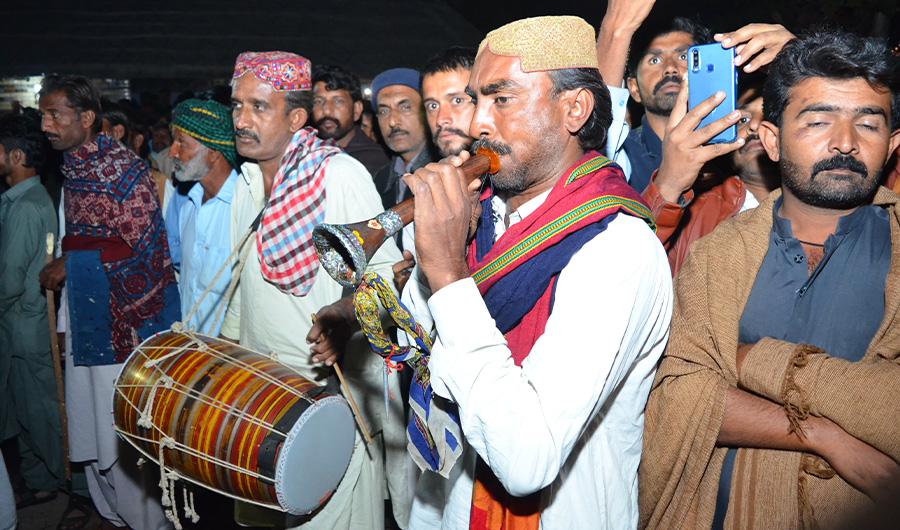
Musicians entertain the crowd before the bonfire ritual of Machh at Bahram Bari Junejo’s shrine in Sanghar district of Sindh province in Pakistan on February 15, 2022. (AN Photo by Abdul Ghaffar Chang)
“The weight of wood used for the bonfire this year is around 48 metric tons,” he said.
The United Nations recommends every country have a minimum of 25 percent forest cover. Over the years, forest cover in Sindh has dwindled to less than two percent and Makhi Forest in Sanghar is one example where tress have vanished due to illegal logging.
But the festival organizer insisted the wood used to fuel the bonfire always came from “private forests” that were not government property.
Environmental activists in the region said it didn’t matter if the wood came from private or public forests.
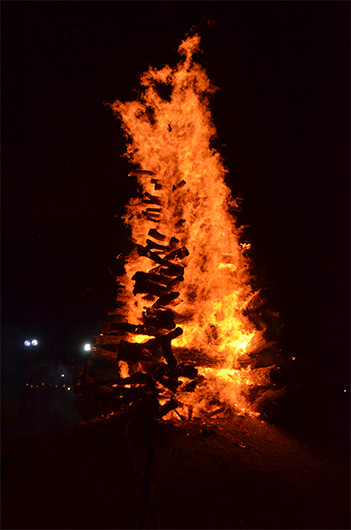
A view of the bonfire at Bahram Bari Junejo’s shrine in Sanghar district of Sindh province in Pakistan on February 15, 2022. (AN Photo by Abdul Ghaffar Chang)
“Pakistan does not have enough forest cover,” Mansoor Memon from the Environmental Friends Committee, a local pressure group of activists, told Arab News. “Yet, we see such rituals where people are making huge bonfires without realizing that it is a total waste of forest resources.”
“Whether the wood is coming from government or private lands, this exercise needs to stop since we are already facing the impact of climate change in Pakistan,” he added. “Authorities should take notice of this festival.”
Deputy Commissioner of Sanghar, Dr. Imran-ul-Hassan Khawaja, did not respond to repeated calls seeking comment for this piece.



